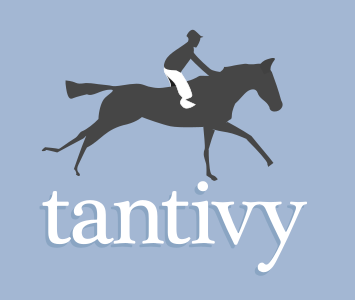[](https://docs.rs/crate/tantivy/)
[](https://github.com/quickwit-oss/tantivy/actions/workflows/test.yml)
[](https://codecov.io/gh/quickwit-oss/tantivy)
[](https://discord.gg/MT27AG5EVE)
[](https://opensource.org/licenses/MIT)
[](https://crates.io/crates/tantivy)

**Tantivy** is a **full-text search engine library** written in Rust.
It is closer to [Apache Lucene](https://lucene.apache.org/) than to [Elasticsearch](https://www.elastic.co/products/elasticsearch) or [Apache Solr](https://lucene.apache.org/solr/) in the sense it is not
an off-the-shelf search engine server, but rather a crate that can be used
to build such a search engine.
Tantivy is, in fact, strongly inspired by Lucene's design.
If you are looking for an alternative to Elasticsearch or Apache Solr, check out [Quickwit](https://github.com/quickwit-oss/quickwit), our search engine built on top of Tantivy.
# Benchmark
The following [benchmark](https://tantivy-search.github.io/bench/) breakdowns
performance for different types of queries/collections.
Your mileage WILL vary depending on the nature of queries and their load.
<img src="doc/assets/images/searchbenchmark.png">
# Features
- Full-text search
- Configurable tokenizer (stemming available for 17 Latin languages with third party support for Chinese ([tantivy-jieba](https://crates.io/crates/tantivy-jieba) and [cang-jie](https://crates.io/crates/cang-jie)), Japanese ([lindera](https://github.com/lindera-morphology/lindera-tantivy), [Vaporetto](https://crates.io/crates/vaporetto_tantivy), and [tantivy-tokenizer-tiny-segmenter](https://crates.io/crates/tantivy-tokenizer-tiny-segmenter)) and Korean ([lindera](https://github.com/lindera-morphology/lindera-tantivy) + [lindera-ko-dic-builder](https://github.com/lindera-morphology/lindera-ko-dic-builder))
- Fast (check out the :racehorse: :sparkles: [benchmark](https://tantivy-search.github.io/bench/) :sparkles: :racehorse:)
- Tiny startup time (<10ms), perfect for command-line tools
- BM25 scoring (the same as Lucene)
- Natural query language (e.g. `(michael AND jackson) OR "king of pop"`)
- Phrase queries search (e.g. `"michael jackson"`)
- Incremental indexing
- Multithreaded indexing (indexing English Wikipedia takes < 3 minutes on my desktop)
- Mmap directory
- SIMD integer compression when the platform/CPU includes the SSE2 instruction set
- Single valued and multivalued u64, i64, and f64 fast fields (equivalent of doc values in Lucene)
- `&[u8]` fast fields
- Text, i64, u64, f64, dates, and hierarchical facet fields
- LZ4 compressed document store
- Range queries
- Faceted search
- Configurable indexing (optional term frequency and position indexing)
- JSON Field
- Aggregation Collector: range buckets, average, and stats metrics
- LogMergePolicy with deletes
- Searcher Warmer API
- Cheesy logo with a horse
## Non-features
Distributed search is out of the scope of Tantivy, but if you are looking for this feature, check out [Quickwit](https://github.com/quickwit-oss/quickwit/).
# Getting started
Tantivy works on stable Rust (>= 1.27) and supports Linux, macOS, and Windows.
- [Tantivy's simple search example](https://tantivy-search.github.io/examples/basic_search.html)
- [tantivy-cli and its tutorial](https://github.com/quickwit-oss/tantivy-cli) - `tantivy-cli` is an actual command-line interface that makes it easy for you to create a search engine,
index documents, and search via the CLI or a small server with a REST API.
It walks you through getting a Wikipedia search engine up and running in a few minutes.
- [Reference doc for the last released version](https://docs.rs/tantivy/)
# How can I support this project?
There are many ways to support this project.
- Use Tantivy and tell us about your experience on [Discord](https://discord.gg/MT27AG5EVE) or by email (paul.masurel@gmail.com)
- Report bugs
- Write a blog post
- Help with documentation by asking questions or submitting PRs
- Contribute code (you can join [our Discord server](https://discord.gg/MT27AG5EVE))
- Talk about Tantivy around you
# Contributing code
We use the GitHub Pull Request workflow: reference a GitHub ticket and/or include a comprehensive commit message when opening a PR.
## Clone and build locally
Tantivy compiles on stable Rust but requires `Rust >= 1.27`.
To check out and run tests, you can simply run:
```bash
git clone https://github.com/quickwit-oss/tantivy.git
cd tantivy
cargo build
```
## Run tests
Some tests will not run with just `cargo test` because of `fail-rs`.
To run the tests exhaustively, run `./run-tests.sh`.
## Debug
You might find it useful to step through the programme with a debugger.
### A failing test
Make sure you haven't run `cargo clean` after the most recent `cargo test` or `cargo build` to guarantee that the `target/` directory exists. Use this bash script to find the name of the most recent debug build of Tantivy and run it under `rust-gdb`:
```bash
find target/debug/ -maxdepth 1 -executable -type f -name "tantivy*" -printf '%TY-%Tm-%Td %TT %p\n' | sort -r | cut -d " " -f 3 | xargs -I RECENT_DBG_TANTIVY rust-gdb RECENT_DBG_TANTIVY
```
Now that you are in `rust-gdb`, you can set breakpoints on lines and methods that match your source code and run the debug executable with flags that you normally pass to `cargo test` like this:
```bash
$gdb run --test-threads 1 --test $NAME_OF_TEST
```
### An example
By default, `rustc` compiles everything in the `examples/` directory in debug mode. This makes it easy for you to make examples to reproduce bugs:
```bash
rust-gdb target/debug/examples/$EXAMPLE_NAME
$ gdb run
```
# Companies Using Tantivy
<p align="left">
<img align="center" src="doc/assets/images/Nuclia.png#gh-light-mode-only" alt="Nuclia" height="25" width="auto" />
<img align="center" src="doc/assets/images/humanfirst.png#gh-light-mode-only" alt="Humanfirst.ai" height="30" width="auto" />
<img align="center" src="doc/assets/images/element.io.svg#gh-light-mode-only" alt="Element.io" height="25" width="auto" />
<img align="center" src="doc/assets/images/nuclia-dark-theme.png#gh-dark-mode-only" alt="Nuclia" height="35" width="auto" />
<img align="center" src="doc/assets/images/humanfirst.ai-dark-theme.png#gh-dark-mode-only" alt="Humanfirst.ai" height="25" width="auto" />
<img align="center" src="doc/assets/images/element-dark-theme.png#gh-dark-mode-only" alt="Element.io" height="25" width="auto" />
</p>
# FAQ
### Can I use Tantivy in other languages?
- Python → [tantivy-py](https://github.com/quickwit-oss/tantivy-py)
- Ruby → [tantiny](https://github.com/baygeldin/tantiny)
You can also find other bindings on [GitHub](https://github.com/search?q=tantivy) but they may be less maintained.
### What are some examples of Tantivy use?
- [seshat](https://github.com/matrix-org/seshat/): A matrix message database/indexer
- [tantiny](https://github.com/baygeldin/tantiny): Tiny full-text search for Ruby
- [lnx](https://github.com/lnx-search/lnx): adaptable, typo tolerant search engine with a REST API
- and [more](https://github.com/search?q=tantivy)!
### On average, how much faster is Tantivy compared to Lucene?
- According to our [search latency benchmark](https://tantivy-search.github.io/bench/), Tantivy is approximately 2x faster than Lucene.